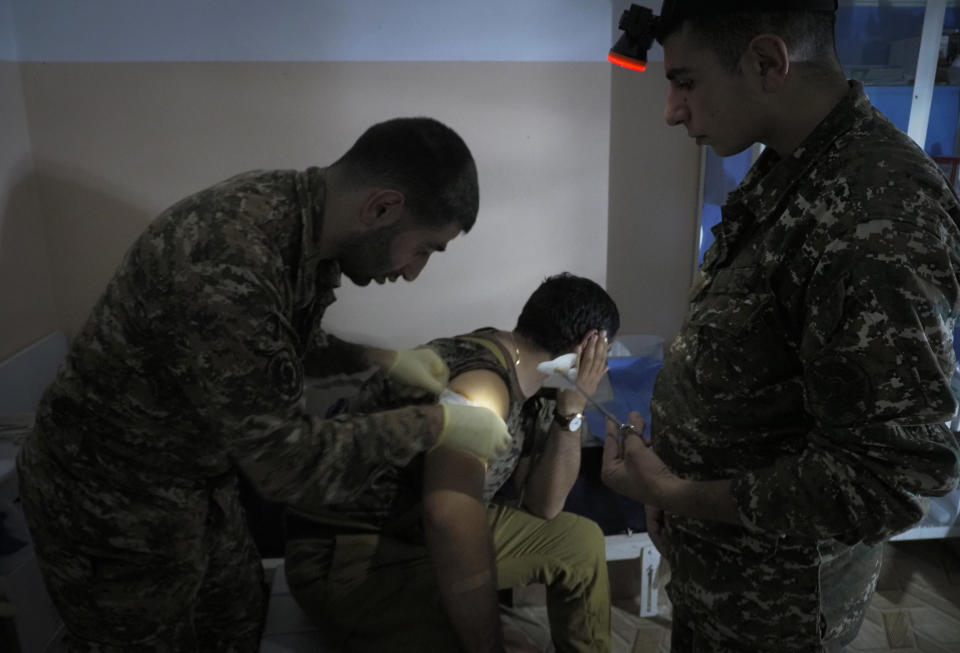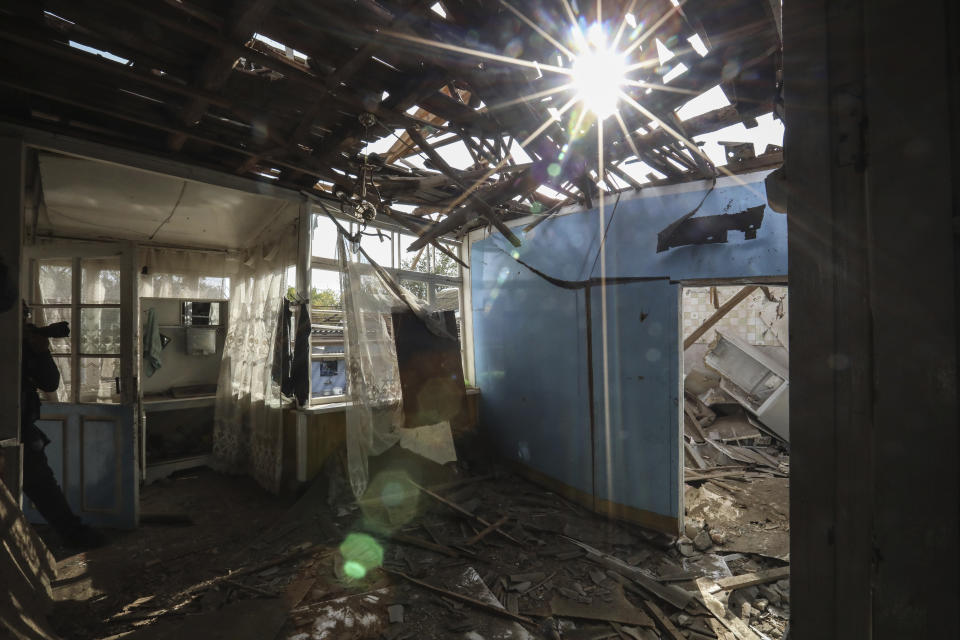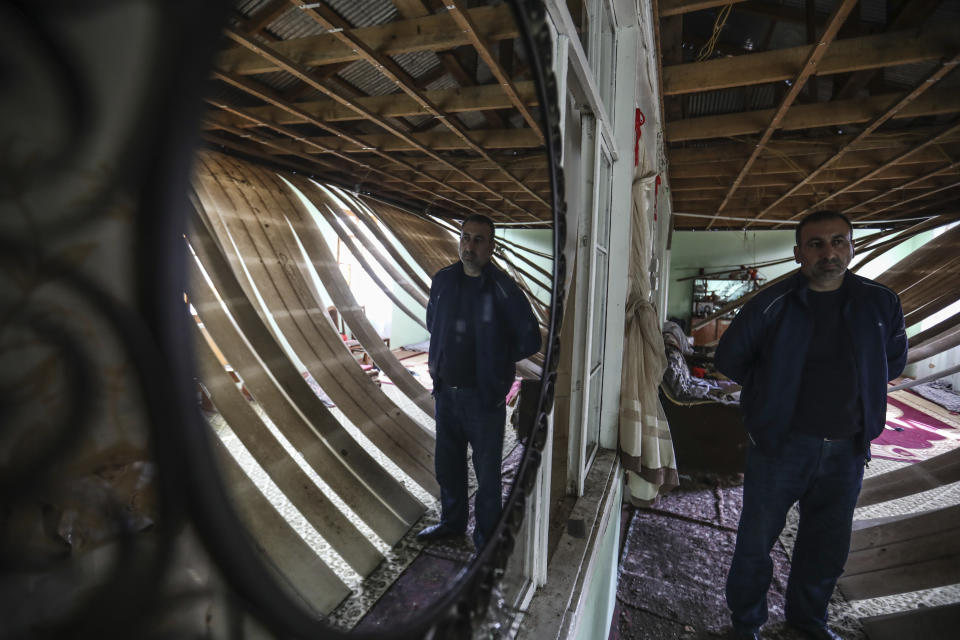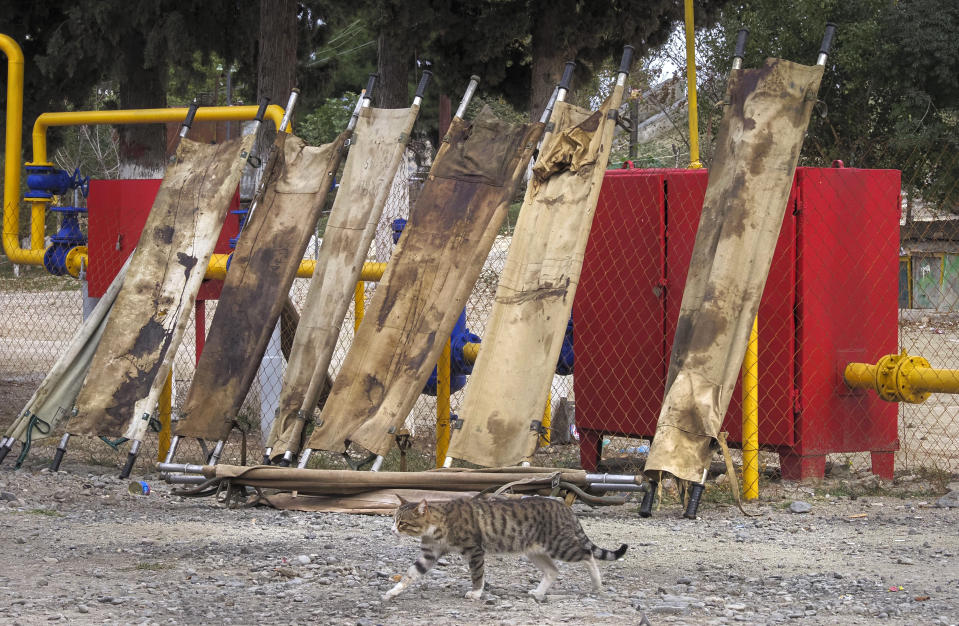Armenia, Azerbaijan keep fighting despite cease-fire deal
YEREVAN, Armenia (AP) — Fighting over the separatist territory of Nagorno-Karabakh raged on Tuesday, unimpeded by a U.S.-brokered cease-fire, while Armenia and Azerbaijan traded blame for the deal's quick unraveling.
Azerbaijan accused Armenia of striking the Barda region with rockets, killing four civilians, including a 2-year-old girl and wounding 13 others. The Azerbaijani Foreign Ministry denounced the attack as “another war crime committed by Armenia in recent days in gross violation of the agreed humanitarian ceasefire.”
Armenia's Defense Ministry rejected the accusations as “an absolute lie and a dirty provocation.”
Earlier in the day, the Armenian military accused Azerbaijani forces of firing at Armenian border guard positions on the country's southern border with Iran, adding that it has retaliated. Azerbaijan's Defense Ministry rejected the statement as “false and provocative."
The U.S.-brokered truce frayed instantly after taking effect Monday, just like two earlier truces negotiated by Russia, with the warring parties blaming each other for violations.
In a bid to save the deal, U.S. Secretary of State Mike Pompeo spoke separately to Azerbaijani President Ilham Aliyev and Armenian Prime Minister Nikol Pashinian on Tuesday. He pressed them to “abide by their commitments to cease hostilities and pursue a diplomatic solution to the Nagorno-Karabakh conflict,” the State Department said, emphasizing that “there is no military solution to this conflict.”
Nagorno-Karabakh lies within Azerbaijan but has been under the control of ethnic Armenian forces backed by Armenia since a war there ended in 1994. By then, Armenian forces not only held Nagorno-Karabakh itself but also captured substantial areas outside the territory’s borders.
The latest fighting, which began Sept. 27 has involved heavy artillery, rockets and drones in the largest escalation of hostilities over the separatist region in the quarter-century since the war ended.
According to Nagorno-Karabakh officials, 1,009 of their troops and 39 civilians have been killed in the clashes so far, while 122 civilians have been wounded. Azerbaijani authorities haven’t disclosed their military losses, but say the fighting has killed 65 civilians and wounded nearly 300.
Russian President Vladimir Putin said last week that, according to Moscow’s information, the death toll from the fighting was nearing 5,000.
Russia, the United States and France have co-chaired the so-called Minsk Group set up by the Organization for Security and Cooperation in Europe to mediate in the conflict, but their attempts to negotiate a political settlement have stalled.
The Minsk Group’s co-chairs are set to meet with the foreign ministers of Armenia and Azerbaijan in Geneva on Thursday, but prospects for progress appear dim.
Azerbaijan's president has argued that his country has the right to reclaim its territory by force after nearly three decades of international mediation have brought no result.
In an interview released on Monday, Aliyev again took aim at the Minsk Group, accusing its co-chairs of working on “freezing the conflict” and offering “just promises, just bureaucratic procedures.”
The president of Azerbaijan said that for the hostilities to end, Armenian forces must withdraw from Nagorno-Karabakh. In Monday's televised address to the nation, Aliyev boasted about Azerbaijani forces retaking control over several areas in and around Nagorno-Karabakh.
In the past, officials in Armenia and Nagorno-Karabakh have rejected some of Aliyev's previous claims of battlefield gains. However, the Armenian Defense Ministry acknowledged Monday that Azerbaijani forces took control of the town of Gubadli near Nagorno-Karabakh's southern edge and acknowledged that Azerbaijani forces also “made advances in some directions.”
____
Associated Press writers Daria Litvinova and Vladimir Isachenkov in Moscow, Aida Sultanova in London and Matthew Lee in Washington contributed to this report.







